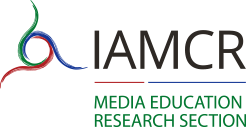
The Media Education Research Section will be holding elections for one chair and three vice-chair positions, for the term 2023 – 2027.
The elections will be held online from 31 May until 16 June using the SurveyMonkey platform.
Individual members and representatives of institutional members in good standing, who are also registered as members of the Media Education Research section will be eligible to stand for a position and to vote. To verify if you are a member of the MER section, log in to your account and click on "My Sections and Working Groups".
The deadline to receive candidate statements was 17 May.
Read about the Media Education Research section
More information and timeline at https://iamcr.org/s-wg/elections2023
Candidates
For Chair:
- Michael Hoechsmann (Lakehead University Orillia, Canada)
- Nathalie PIERRE-CHARLES (University of Paris 13, France)
For Vice-chair:
- Rayén Condeza (Pontificia Universidad Católica de Chile)
- Oscar Mario Miranda-Villanueva (Tecnologico de Monterrey, Mexico)
- Sisanda Nkoala (Cape Peninsula University of Technology, Cape Town, South Africa)
- Devina Sarwatay ((University of Hyderabad, India and Research Associate, FemLab, India)
- Faith Valencia-Forrester (Griffith University, Australia)
Statements
Michael Hoechsmann (Lakehead University Orillia, Canada)
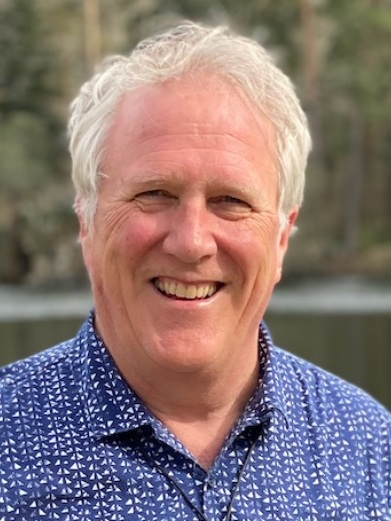
Dear MER-IAMCR Members:
I would like to put forward my name to serve as Chair of the Media Education Research section.
I have been one of the vice-Chairs of the MER Section over the past four years, and I would like to continue to serve for another term.
I have played an active role in the Section over the past seven years: I co-organized the MER pre-conference in Cartagena in 2017, “Media Literacy: Where are we now?,” and also the MER post-conference in Segovia in 2019 (co-hosted with the IAMCR Audience Section and the Media Education Summit); I helped steer the section through the online conferences during the pandemic; I organized the MER Special Session webinar in 2021 called “Is media education a movement or a field?”; and I am one of the five co-editors of The Handbook of Media Education Research (2021) Hoboken, NJ: Wiley/IAMCR. Alongside my involvement with the IAMCR-MER Section, I am the Vice-Chair of the Board of Media Smarts: Canada’s Centre for Digital and Media Literacy; I am a Board member of the US-based International Council 4 Media Literacy; and I have been actively involved in the UNESCO Media and Information Literacy movement since attending the first annual gathering in 2011 in Fez, Morocco. In the past 3 years, I have participated on conference organizing committees with the Critical Literacy Media Conference of the Americas; the Media Education Summit; and the UNESCO Democracy, Global Citizenship and Transformative Education Symposium (as well as MER-IAMCR).
I am a Professor of Education and an Adjunct Professor of Media, Film and Communication at Lakehead University in Orillia, Ontario, Canada. I speak and read Spanish at an advanced level.
Thank you for your support.
Michael Hoechsmann
Nathalie PIERRE-CHARLES (University of Paris 13, France)
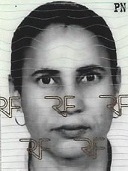
I would like to present my candidacy for the position of Chair of the Media Education Research Section.
I have been a member of the IAMCR for three years, and I began to invest myself and to transmit my appreciation of scientific research during the Beijing conference and on abstracts for the Lyon conference within the Media Ethics working group.
I have a doctorate in Information and Communication Sciences and I teach Media and Information Literacy to middle and high school students. I am also a lecturer at the University of the West Indies in Information and Communication Sciences and in Education Sciences.
I would like to become more involved and contribute my expertise to research at the IAMCR. I am committed to promoting and encouraging research on the theory and practice of media literacy at the school, college and university levels.
Yours sincerely
Nathalie PIERRE-CHARLES
Rayén Condeza (Pontificia Universidad Católica de Chile)
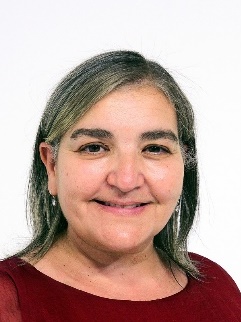
Doctor Rayén Condeza (She), Associate Professor Faculty of Communication Pontificia Universidad Católica de Chile, President Chilean Association of Communication Researchers (2022-2024). Editor in Chief Cuadernos.info (sabatic 2023).
The MER section of IAMCR has been characterized by an openness to diversity, by promoting an interdisciplinary dialogue, as well as by hosting contributions from different latitudes in which this important specialty of communications research is developed. For this reason, I am excited to be able to participate in this enriching space that MER means and from here to contribute to the section convening more research from Ibero-America and other countries that, for different reasons, have had less opportunity to be represented in the annual conferences and in the important exchange networks that are intertwined here.
Research in media and education is at the heart of the main current social, political and cultural issues of glocal societies and cultures. Today they are challenged by the role of platforms in education, entertainment, information/disinformation, datafication and the new inequalities that are generated. This requires a research approach from a humanistic and ethical perspective. We have lived the collective experience of a pandemic, which further reinforced the already central role of the media, technology and the digital, which add to the great issue of artificial intelligence and climate change. Thus, new scenarios and questions are configured that the MER section can contribute to understanding, with the collaboration of each of its participants and thus impact on the development of current and future generations, from an interdisciplinary and intergenerational perspective.
I will be very interested in being able to contribute to MER making visible a dynamic, pluralistic research agenda, with participation from different latitudes and that we contribute to giving voice to new researchers.
La sección MER de IAMCR se ha caracterizado por una apertura a la diversidad, por promover un diálogo interdisciplinario, así como por albergar contribuciones de distintas latitudes en las que se desarrolla esta importante especialidad de la investigación en comunicaciones. Por lo mismo me entusiasma poder participar en este espacio enriquecedor que significa MER y desde aquí contribuir a que la sección convoque a más investigaciones de Iberoamérica y de otros países que, por distintas razones, han tenido menos oportunidad de estar representados en las conferencias anuales y en las importantes redes de intercambio que aquí se entrelazan. La investigación en medios y educación se encuentra en el centro de las principales problemáticas actuales sociales, políticas y culturales de las sociedades y culturas glocales. Hoy se ven desafiadas por el rol de las plataformas en la educación, la entretención, la información/desinformación, la datificación y en las nuevas desigualdades que se generan. Ello requiere un trazado de investigación desde una perspectiva humanista y ética. Hemos vivido la experiencia colectiva de una pandemia, que reforzó aun más el rol ya central de los medios, de la tecnología y de lo digital, que se suman a la gran cuestión de la inteligencia artificial y del cambio climático. Así se configuran nuevos escenarios e interrogantes que la sección MER puede contribuir a comprender, con la colaboración de cada uno de sus participantes y así impactar en el desarrollo de las actuales y futuras generaciones, desde una perspectiva interdisciplinaria e intergeneracional.
Estaré muy interesada en poder contribuir a que MER visibilice una agenda de investigación dinámica, pluralista, con participación de distintas latitudes y que contribuyamos a dar voz a nuevos investigadores.
Oscar Mario Miranda-Villanueva (School of Humanities and Education, Tecnologico de Monterrey, Mexico)
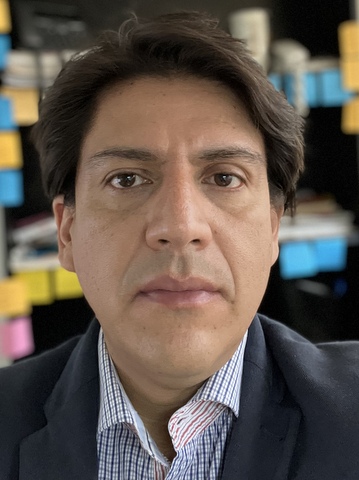
I have been a member of the IAMCR since 2016, but I have participated in and followed the sessions of the MER section since 2018. My work in this research frame concerns the interaction between university students and digital media. More recently, I have broadened my interests to the study of the interaction between digital media and speakers of indigenous languages, in particular the cmiique iitom (Seri) language, and in exploring and reviewing how the use and knowledge of such media can solidify the language through digital and didactic resources. All this is due to my participation in a research project in Punta Chueca and Desemboque, Sonora, in Mexico. Therefore, I am interested in participating actively in the MER section to expand my network and build knowledge based on the expectations of the section and my experience. Furthermore, I promise to solidify the section and its members using the technological and academic tools at my disposal in my institution. Therefore, I want to be considered for the vice chair nomination.
Sisanda Nkoala (Cape Peninsula University of Technology, Cape Town, South Africa)
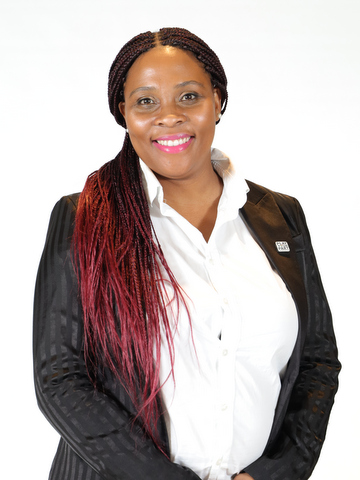
My name is Sisanda Nkoala (PhD), and I am a senior lecturer in the Media Department in the Faculty of Informatics and Design at the Cape Peninsula University of Technology. I have a PhD in Rhetoric Studies from the Centre for Rhetoric Studies at the University of Cape Town, where my research is on the persuasive appeal of television news reports on crime and justice. I am the 2023 winner of the National Institute of Humanities and Social Sciences Digital Humanities Winner in the best Visualisation or Infographic category. I am also a 2022 Open Education Resource Champion for the South African Centre for Digital Language Resources. My research and teaching areas include rhetoric studies, media studies, multilingual education, journalism education, media law, and court and crime reporting.
I am passionate about media and communication education, as evidenced by the fact that I am currently the stream leader of the Communication Education and Curriculum Development for the South African Communication Association, am a member of the steering committee of the African Journalism Educators Network and am engaged with the World Journalism Education Council (presented a paper in 2022) and the Association for Education in Journalism and Mass Communication. I am editing a special issue of the Taylor and Francis African Journalism Studies journal on journalism education in Africa. In 2022, the UNESCO Press Freedom Academic Conference invited me to present on a panel on Censorious Assaults on Education and Collateral Impacts on Student Press Freedom. I am also part of an Erasmus+-funded project called Futurability, which gathers a Strategic Partnership of organisations - Universities, Research Centres and Cultural Enterprises - working with Visual Methods and Digital Learning tools willing to investigate, produce and share Open Educational Resources(OER) to make online teaching more attractive and accessible, about the European Frameworks DigCompEdu and LifeComp.
If given a chance to lead in the IAMCR’s Media Education Research Section, I hope to drive initiatives that will strengthen more international collaborations between media education scholars so that we can learn from each other and advance the field. Through regular engagements such as workshops and webinars, I will also create platforms for members to deliberate on current and pressing issues affecting the field so that members can share their ongoing research and remain engaged between conferences. I hope also to facilitate the production of at least one scholarly output driven by the interests and contributions of the section members. These plans, while ambitious, are achievable for me, as evidenced by the work I have managed to do as a stream convenor within my local communication association, SACOMM.
Devina Sarwatay (University of Hyderabad, India and Research Associate, FemLab, India)
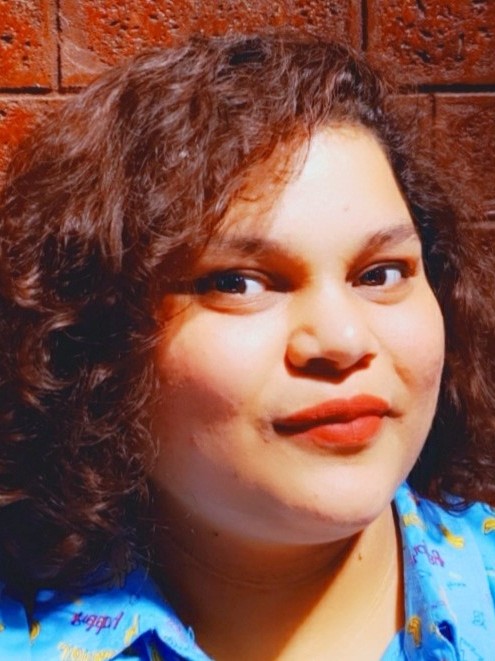
Hello! I am Devina and my research focuses on young people and social media. I was recently awarded a PhD in Communication for my thesis, ‘Growing up on social media: Indian adolescents’ experiences, perceptions, and practices’ under the guidance of Prof. Usha Raman at the Department of Communication, University of Hyderabad, India. While I am applying for permanent positions, I serve as Research Associate at FemLab for projects on Gen Z and Digital Creativity in the Global South, and Digital Motherhood and Indian Kids Online. My interests lie in the interactions between young people and media, digital cultures, and digital and media literacies. I regularly present at conferences like IAMCR (International Association for Media and Communication Research), ICA (International Communication Association), and AoIR (Association of Internet Researchers) and my work has been published in journals like Information, Communication & Society (won the Best Published Article award at ICA Children, Adolescents, and Media Division), Media International Australia, Journal of Communication, among others, and Handbooks like Wiley-Blackwell (Handbook of MER) and Routledge.
I am applying for the position of Vice-Chair at the Media Education Research (MER) Section at IAMCR because as a freshly minted PhD from the Global South, I believe I have a lot to share. Scholars in this region face several issues including:
a. access to good work being done
b. means to enabling young researchers to academically read, research, and write better
c. lack of resources for conferences and publications
d. furthering research and participation across the globe.
It is time to be more diverse, inclusive, and attentive of all the amazing research done in the Global South while overcoming odds in the process. This position attracts me because I imagine it to be a platform to voice my and fellow scholars’ concerns and get down to doing something about them.
If elected, I hope to use this position and, with my co-vice-chairs and chair at MER along with the IAMCR leadership, hope to accomplish the following:
a. continue the MER webinar series with a focus on work from and on the Global South and featuring Early Career Researchers (ECRs) from across the globe
b. create a MER mentorship pilot program for ECRs
c. work towards making conferences, publications, and resources more accessible
d. build avenues for global research, participation, and collaboration through the MER and IAMCR networks
In my academic career so far, I have tried and somewhat succeeded – and sometimes failed, yet benefited – in packing as many experiences as possible, and learned and built my scholarship and networks.
Through this position, I hope to give back to my academic community and serve as a bridge between ECRs and senior scholars such that we can gain and learn from each other. I hope my background and this statement has inspired you to vote for me! Thank you.
Faith Valencia-Forrester (Griffith University, Australia)
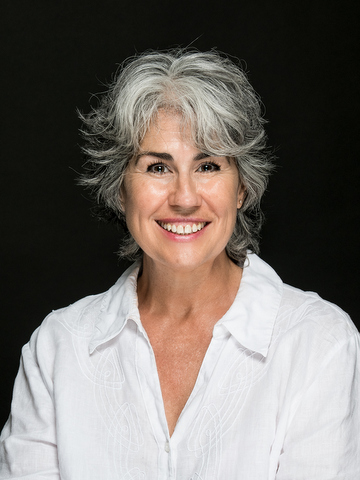
Senior Research Fellow
Griffith University
Academic Lead (WIL)
Charles Sturt University
I have combined my media experience working in radio, television and online, my degrees in Arts, Law and Business, and my PhD in inclusive university-led work-integrated learning (WIL) to help journalism students gain experience preparing them for employment. My research identifies ways to ensure ALL journalism students get a job. I want to instil in them a passion for what journalism and the media can achieve to create positive change for communities. Understanding they can achieve and work toward social impact through work-integrated learning experiences that have an impact beyond the classroom. In 2015 I partnered with 12 Community Organisations working with victims of domestic violence and published a website featuring stories written by journalism students addressing domestic violence in a way that didn’t blame the victim. Something that wasn’t being done in mainstream media outlets.
In 2017, I partnered with community organisations again to publish a website of student journalists telling stories of disability in a respectful and appropriate way for the disability community. In 2018, I wove Aboriginal and Torres Strait Islander content delivered by Traditional Owners to demonstrate different ways of knowing and being for students and how to engage with Indigenous Communities to tell their stories. In 2018, my students were allowed access to the 2018 Stolenwealth Camp during the 2018 Commonwealth Games to tell the stories of Colonisation for Aboriginal and Torres Strait Communities during the Commonwealth Games. These stories by journalism students received national coverage and were nominated for Australia's Journalism Industry Award, The Walkley Awards.
My work focuses on social justice and actively demonstrates inclusion and equity, both inside the newsroom and through media coverage. My research has focused on developing engaged connections between the university and the community. I strive to move education beyond the typical classroom practice divide. The advantages stretch much further than students simply gaining practical experience; their work creates real-life impacts and can address disadvantages within the community. My research "seeks to critique the dominant models of work-integrated learning (WIL) in journalism education, explore emerging models of WIL, and investigate the value of these innovations in WIL models. In offering a critical review of the current approaches to WIL in journalism education, I presented several university-led WIL case studies as options for expanding and increasing equitable opportunities for journalism degree students. Ensuring equitable access to practical opportunities, informed by current and future industry requirements, providing all graduates, including students with disability, with the skills and experience necessary for employment. For several years, I have had leadership positions in WIL specialising in Service Learning and developing multi-discipline social impact projects with multiple partners.